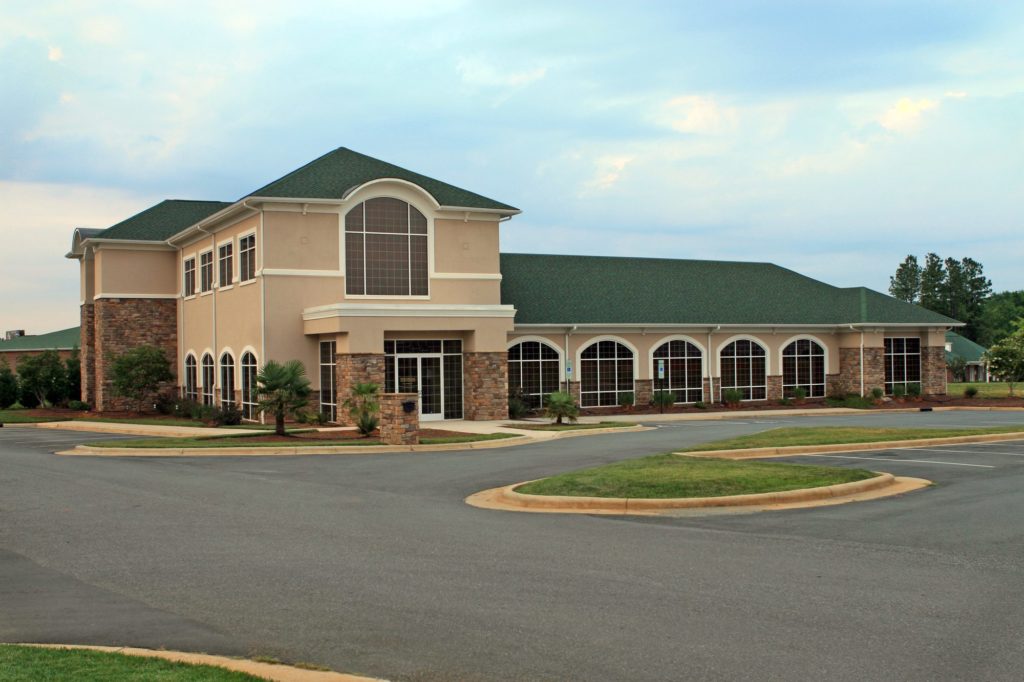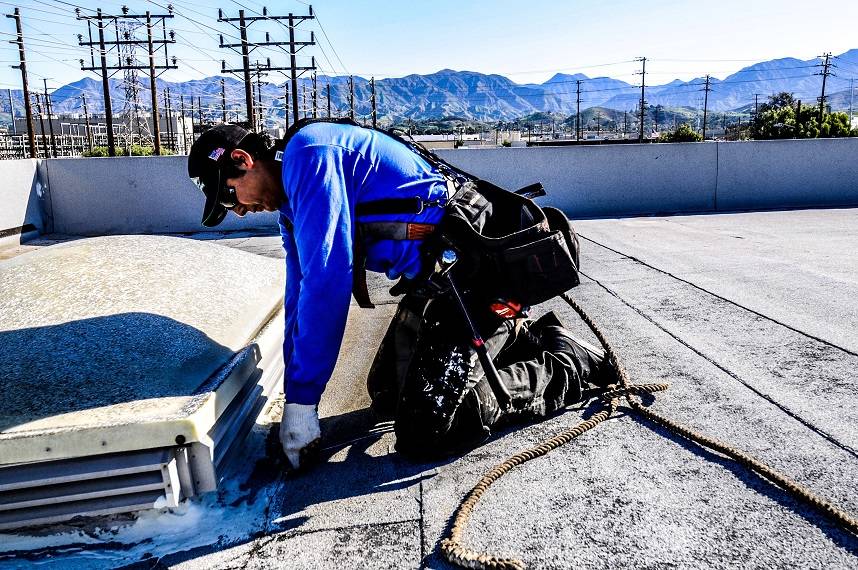At Central Roofing Company, we understand that a sturdy and reliable roof is crucial for the success and safety of your commercial property. Our team of highly skilled and trained roofing professionals is committed to delivering exceptional craftsmanship and superior service in every project we undertake.
How to Compare the Different Types of Commercial Roofs
 In 2018, U.S. roofing contractors are continuing the trend of consistent sales growth. The current rate of 14.2 percent shows the demand for roofing installation and repair. Even so, the question most business owners want answered concerns commercial roof types.
In 2018, U.S. roofing contractors are continuing the trend of consistent sales growth. The current rate of 14.2 percent shows the demand for roofing installation and repair. Even so, the question most business owners want answered concerns commercial roof types.
Despite not knowing the different types of commercial roofs, many understand their benefits. They include protecting you from the elements and covering your property. They also save you on energy, which means lower costs of heating and cooling.
Moreover, bad roofing can increase your liability if an accident happens. For example, water leaks might cause slipping hazards. Roofs also block falling debris, which might hurt someone.
To get these benefits, you need the best type of roofing system for your property. But how do you compare them and find the right one for you? Keep reading to learn more about the different commercial roof types.
Comparing the Different Commercial Roof Types
By 2019, the U.S. demand for roofing will be valued at about $21.4 billion. Yet, many businesses don’t know the differences between different types of roofing systems. That information can help them know which roof type will serve their business better.
Here are some of the different commercial roof types and their comparisons:
1. EPDM (Ethylene Polymer Diene Monomer)
This roofing system is cheaper to install than other systems. It is a single ply membrane, which lasts for about twenty years. With great care, this type of roof can last even longer than that. It is also easier to repair than other systems.
Moreover, it can reflect the sun’s rays, which is good for keeping the building cool.
2. Green Roofing
Due to the desire to go green, many business owners are trying green roofing systems. These involve putting soil and vegetation on a flat roof. While a lot of care is needed for this type of roof, it has benefits as well.
Green roofing is expensive during installation. That’s due to the materials needed, roof waterproofing, and water supply for the plants. Yet, you can look at it as a long-term investment.
It increases the roof’s longevity and improves the insulation. It also soaks up the heat, which helps to cool the building. Plus, it is better for the environment than the other treated roofing systems.
3. Thermoplastic Roofing
Many companies use thermoplastic roofing instead of the other systems. It uses white factory-made sheets, which are heated, cooled, and welded together. Once installed, it becomes very strong, durable, and long-lasting.
These thermoplastic membranes can be either Polyvinyl chloride (PVC) or Thermoplastic polyolefins (TPO). Their installation process makes them tolerant of high-temperatures and resistant to fire.
Such roofs keep the building cool because the white color reflects sun rays. This reflective roofing reduces heat and energy wastage in the area as well. This is good for going green.
4. Modified Bitumen
This is an improvement on asphalt roofing, which uses hot asphalt and gravel. Modified bitumen uses asphalt and other roofing materials. This makes it a long-lasting option.
Still, asphalt is a heavy roofing material. Thus, it can be tough to maintain or repair. It is also very expensive to install.
Learn More About Commercial or Industrial Roofing
As you can see, the commercial roof types above each have their benefits. Even so, focus on getting a roof that is durable and energy-efficient. It should be cost-effective, properly installed, and easy to repair.
Visit our website to learn more about commercial or industrial roofing.
Let’s Fix Your Roof Right — Get a Free Estimate Today
Serving Los Angeles & Orange County for 30+ years.
Trusted. Local. Professional.
Central Roofing Company Headquarters
555 W. 182nd Street
Gardena, CA 90248
📞 310-527-6770

Get A Quote
One of our roofing estimators will gladly meet you to discuss your options and follow up with a free, no-obligation, written estimate.
555 W. 182nd St. Gardena, CA 90248
Ph: 310-527-6770
Our Office Locations:
Our Services
CA license #684960 – Central Roofing, 2025 ©All Rights Reserved | Terms of Use | Privacy Policy | Built by Dymic